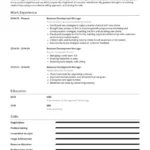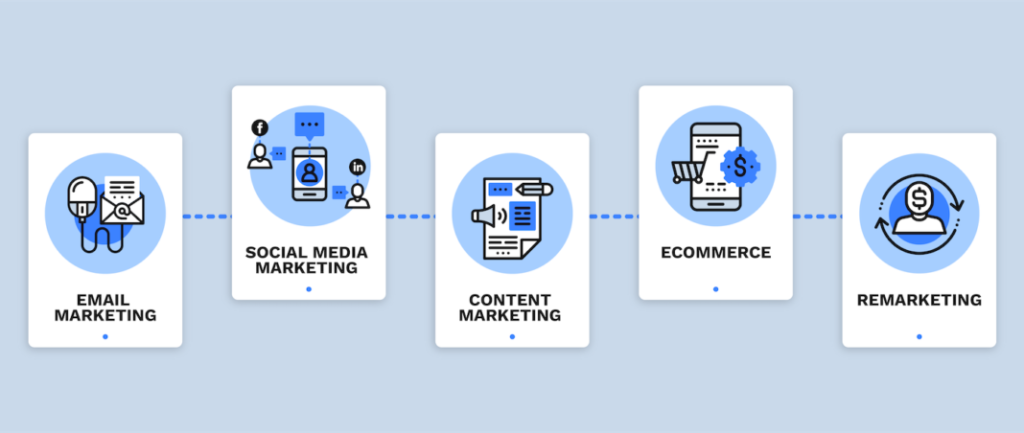
Navigating the marketing world can be tricky for small businesses. There are countless tools promising to boost your business.
Small businesses need effective marketing tools to grow and compete. With the right tools, you can reach more customers, manage campaigns, and track results efficiently. But how do you choose the best ones? The market is full of options, and it can be overwhelming.
You need tools that are affordable, easy to use, and effective. This blog post will guide you through some of the best marketing tools for small businesses. We’ll explore options to help you make informed decisions. Let’s dive in and find the tools that will best support your business growth.
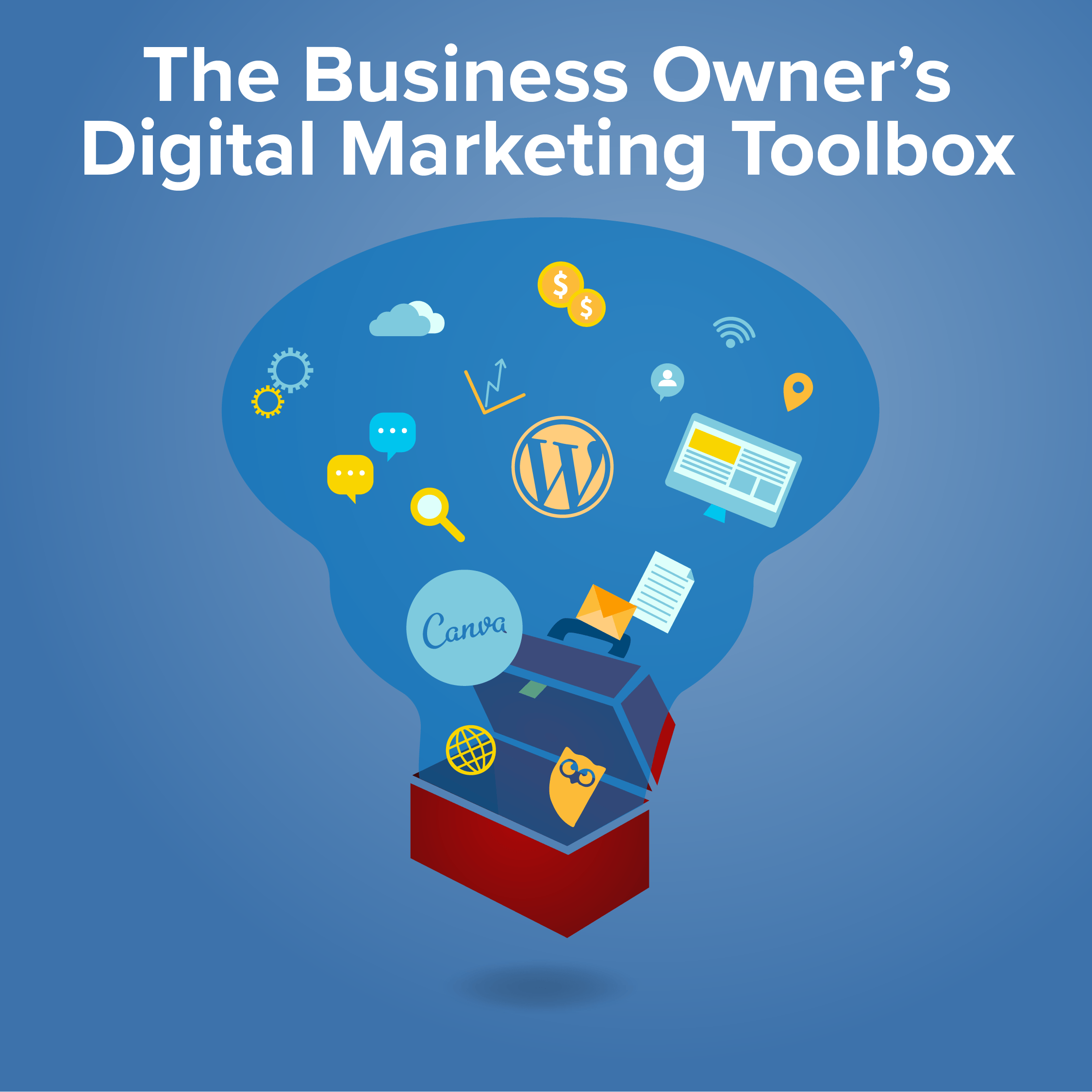
Credit: alphametic.com
Introduction To Marketing Tools
Small businesses often face unique challenges in the world of marketing. With limited resources and budgets, it is crucial to use effective tools that maximize impact. In this section, we will explore the best marketing tools that can help small businesses thrive.
Importance For Small Businesses
Marketing tools are vital for small businesses. They help streamline tasks and save time. These tools also offer insights that can drive growth. Here are some key reasons:
- Cost-Effective: Many tools are affordable and offer great value.
- Efficiency: Automate repetitive tasks to focus on strategy.
- Data-Driven Decisions: Gain insights into customer behavior.
- Improved Communication: Engage with customers through various channels.
Trends In 2024
As we move into 2024, several trends are shaping the marketing landscape. Staying updated can give small businesses a competitive edge. Key trends include:
- AI and Automation: Tools that use AI for personalization and automation are in demand.
- Video Marketing: Short, engaging videos are becoming essential.
- Social Commerce: Selling directly through social media platforms is growing.
- Interactive Content: Quizzes and polls increase engagement.
Adopting these trends can significantly boost a small business’s marketing efforts.
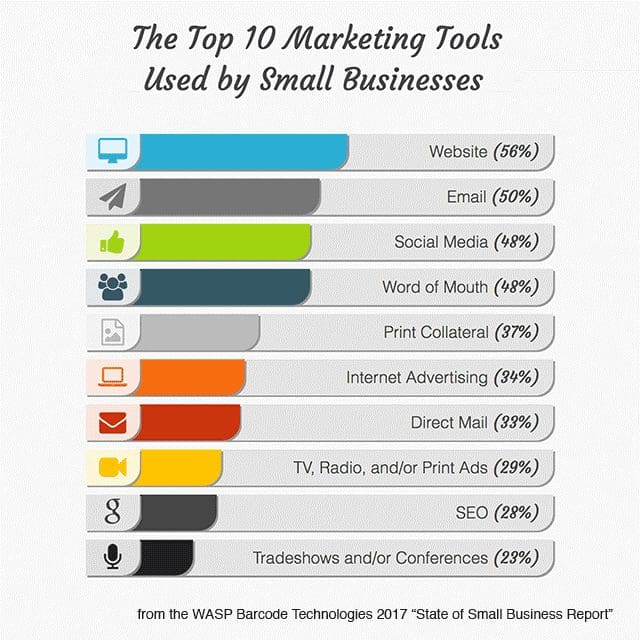
Credit: www.hausmanmarketingletter.com
Email Marketing Tools
Email marketing is an essential tool for small businesses. It helps build strong customer relationships. You can promote products, share updates, and send newsletters. Choosing the right email marketing tool can make a big difference. Here are some top picks and features to consider.
Top Picks
- Mailchimp: User-friendly and offers a free plan for small businesses.
- Constant Contact: Great for beginners with excellent customer support.
- Sendinblue: Affordable with a wide range of features, including SMS marketing.
- ConvertKit: Ideal for bloggers and creators with automation features.
- AWeber: Easy to use with great customer service and a free plan.
Features To Consider
| Feature | Importance | Explanation |
|---|---|---|
| Ease of Use | High | Choose tools with simple interfaces. They save time and reduce stress. |
| Automation | High | Automated campaigns save time. They ensure messages are sent at the right time. |
| Templates | Medium | Look for tools with a variety of customizable templates. They make emails look professional. |
| Analytics | High | Analytics help track the success of your campaigns. They show open rates, clicks, and more. |
| Integration | Medium | Ensure the tool integrates with other software you use. This includes CRM and e-commerce platforms. |
| Customer Support | High | Good customer support is crucial. It helps resolve issues quickly and efficiently. |
| Cost | Medium | Consider the pricing plans. Ensure they fit your budget and offer value for money. |
Social Media Management
Social media management is crucial for small businesses. It helps businesses connect with their audience. Efficient social media use can boost brand awareness and drive sales.
Best Platforms
Choosing the right platforms is essential. Facebook is popular with a wide audience. Instagram is great for visual content. Twitter works well for quick updates and news. LinkedIn is ideal for professional networking. Each platform offers unique benefits.
Scheduling And Analytics
Scheduling tools save time. They allow you to plan and post content in advance. Tools like Hootsuite and Buffer are excellent choices. They let you schedule posts across multiple platforms. This ensures consistent and timely updates.
Analytics tools help measure success. They track engagement, reach, and follower growth. Insights from these tools guide future content strategies. Popular options include Sprout Social and Google Analytics. They provide detailed reports and easy-to-understand data.
Seo Tools
SEO tools are essential for small businesses that want to improve their online presence. These tools help you optimize your website, track your rankings, and analyze your competition. Let’s explore some popular SEO tools and how they benefit small businesses.
Popular Choices
- Google Analytics: Tracks website traffic and user behavior.
- SEMrush: Offers keyword research, site audits, and backlink analysis.
- Ahrefs: Provides detailed insights into your competitors’ SEO strategies.
- Yoast SEO: A WordPress plugin for on-page optimization and readability checks.
Benefits For Small Businesses
SEO tools offer numerous advantages for small businesses. Here are a few key benefits:
- Improved Search Rankings: SEO tools help you identify the best keywords for your niche. This can boost your website’s visibility on search engines.
- Competitive Analysis: Tools like Ahrefs and SEMrush allow you to spy on your competitors. You can see what keywords they are targeting and how they rank.
- Website Optimization: Plugins like Yoast SEO help you optimize your content for search engines. This can improve your website’s user experience.
- Data-Driven Decisions: Google Analytics provides valuable data about your website traffic. You can make informed decisions based on this data.
| Tool | Features | Best For |
|---|---|---|
| Google Analytics | Traffic analysis, user behavior | Understanding audience |
| SEMrush | Keyword research, site audit | Comprehensive SEO strategy |
| Ahrefs | Backlink analysis, competitor insights | Competitive analysis |
| Yoast SEO | On-page optimization, readability | Content optimization |
Content Creation Tools
Creating engaging content is vital for small businesses. Content creation tools can help you produce high-quality, professional content. These tools can save you time and money. Let’s explore the best content creation tools available for small businesses.
Design And Writing
Design and writing tools help you create visually appealing and well-written content. Here are some top choices:
- Canva: A user-friendly design tool. Perfect for creating social media graphics, presentations, and more.
- Grammarly: This writing assistant helps you with grammar, spelling, and style. It ensures your content is error-free.
- Piktochart: Ideal for creating infographics. It helps you present data in an engaging way.
Ease Of Use
Ease of use is crucial for small businesses. You need tools that are simple and effective. Let’s look at some options:
| Tool | Features | Ease of Use |
|---|---|---|
| Canva | Pre-designed templates, drag-and-drop interface | Very easy |
| Grammarly | Real-time grammar and spell check | Very easy |
| Piktochart | Customizable infographics templates | Easy |
Using these tools can enhance your content. They offer simplicity and efficiency. Small businesses benefit from tools that are easy to use and effective. Choose the right tools to create amazing content for your business.
Customer Relationship Management (crm)
Customer Relationship Management (CRM) tools are vital for small businesses. They help manage interactions with customers. These tools store customer data, track sales, and monitor customer interactions. CRM systems can improve customer satisfaction and boost sales. They streamline processes and ensure every customer gets the attention they need.
Top Crm Solutions
Several CRM solutions are ideal for small businesses. One popular option is HubSpot CRM. It’s free and user-friendly. Another great choice is Zoho CRM. It offers various features at an affordable price. Salesforce Essentials is also worth considering. It’s designed specifically for small businesses. These tools can help manage customer data effectively.
Integration With Other Tools
Integration with other tools is crucial for a CRM system. Many CRMs integrate with email marketing platforms. This makes it easy to send targeted campaigns. They also sync with social media tools. This helps track customer interactions on social channels. Some CRMs integrate with accounting software. This ensures that financial data is up-to-date. Integrations streamline workflows and save time.
Analytics And Reporting
Understanding your marketing efforts is crucial for any small business. Analytics and reporting tools help you make data-driven decisions. They show how your campaigns perform and where you can improve. These tools give you insight into your audience’s behavior, helping you to tailor your strategies better.
Key Metrics To Track
Tracking the right metrics can make all the difference. Here are some key metrics every small business should monitor:
- Website Traffic: Know how many people visit your site.
- Bounce Rate: See how often visitors leave without interacting.
- Conversion Rate: Measure how many visitors become customers.
- Customer Acquisition Cost: Calculate the cost of gaining a new customer.
- Return on Investment (ROI): Understand the profitability of your campaigns.
Best Reporting Tools
Several tools can help small businesses with analytics and reporting. Here are some of the best options:
- Google Analytics: Free and robust, it tracks website data and user behavior.
- SEMrush: Offers detailed insights on SEO and marketing performance.
- HubSpot: Provides comprehensive reporting for marketing, sales, and customer service.
- Hootsuite: Ideal for tracking social media metrics and engagement.
- Zoho Analytics: A powerful tool for business intelligence and reporting.
Using these tools, small businesses can better understand their marketing efforts. This leads to smarter decisions and more effective strategies.
Budget-friendly Options
Running a small business on a tight budget can be challenging. Fortunately, there are many marketing tools available that won’t break the bank. These tools can help boost your marketing efforts without requiring a large investment. Here, we’ll explore some of the best budget-friendly options for small businesses.
Free Tools
Even with zero budget, you can access powerful tools to enhance your marketing. Here are some free options:
- Google Analytics: Track your website’s traffic and user behavior.
- Canva: Design eye-catching graphics for social media and promotions.
- Hootsuite: Schedule and manage your social media posts.
- MailChimp: Send email campaigns and newsletters to your audience.
- Buffer: Plan and publish content across various social platforms.
Affordable Paid Tools
If you can spare a small budget, some affordable paid tools offer advanced features. Here are some options:
| Tool | Starting Price | Key Features |
|---|---|---|
| Semrush | $99.95/month | SEO tracking, competitor analysis, and keyword research. |
| AWeber | $19/month | Email marketing, automation, and landing pages. |
| Moz Pro | $99/month | SEO tools, site audits, and rank tracking. |
| Ahrefs | $99/month | Backlink analysis, keyword research, and site audits. |
| Piktochart | $24.17/month | Infographic creation, reports, and presentations. |
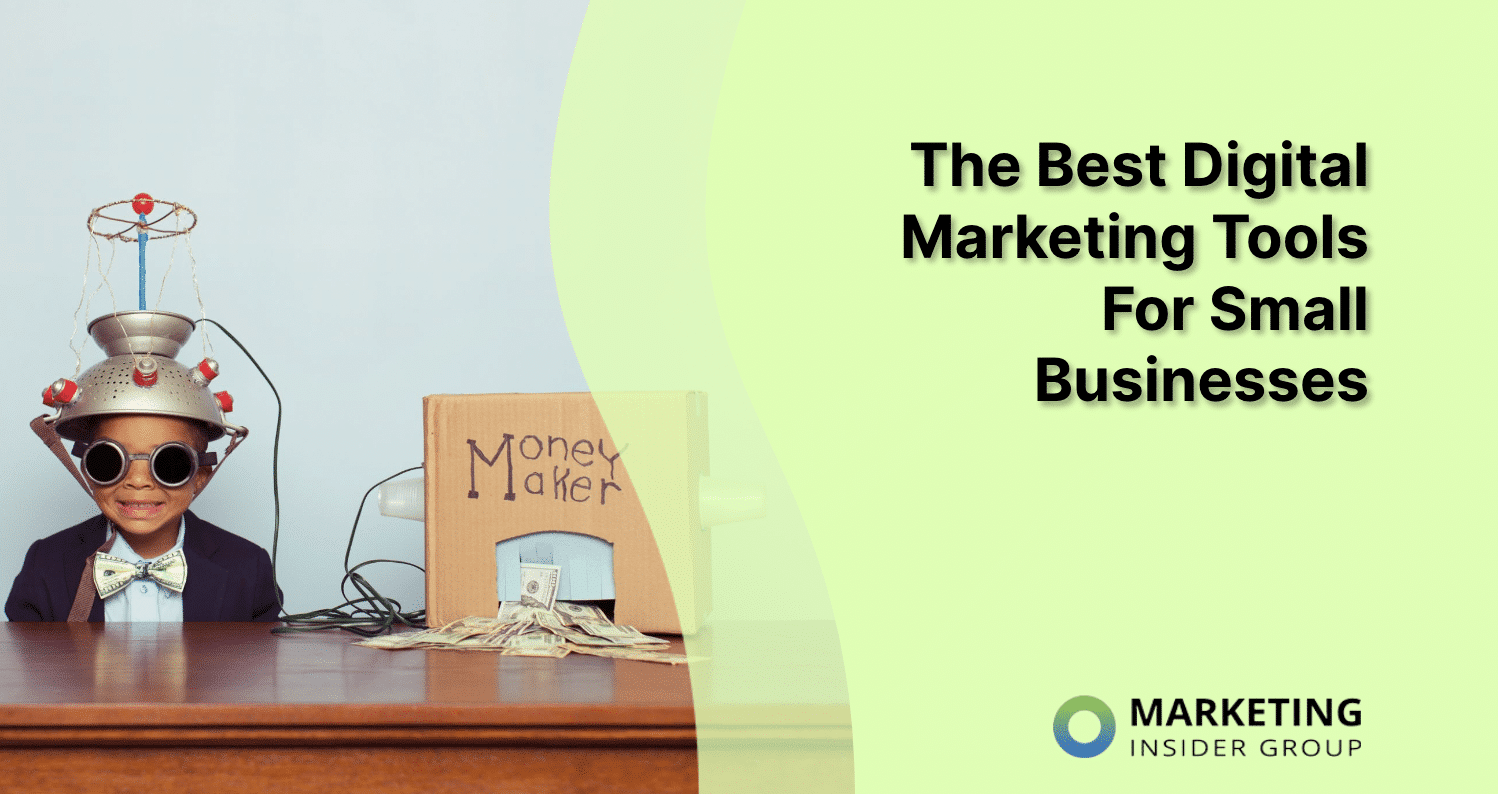
Credit: marketinginsidergroup.com
Frequently Asked Questions
What Are The Best Marketing Tools For Small Businesses?
Small businesses benefit from tools like Mailchimp, Hootsuite, and Google Analytics. These tools help manage email campaigns, social media, and website analytics efficiently.
How Can Small Businesses Use Marketing Tools Effectively?
Small businesses should focus on tools that automate tasks, track performance, and engage customers. This saves time and improves marketing efficiency.
Why Are Marketing Tools Important For Small Businesses?
Marketing tools help small businesses reach their target audience, track campaign success, and optimize marketing strategies. They save time and resources.
Which Social Media Tools Are Best For Small Businesses?
Hootsuite, Buffer, and Later are excellent social media tools. They help schedule posts, track engagement, and manage multiple accounts.
Conclusion
Selecting the right marketing tools is crucial for small businesses. These tools save time, reduce costs, and boost reach. They help manage social media, emails, and customer relationships. Small businesses can compete better with effective tools. Consistent use of these tools leads to growth.
Start exploring these tools today. Make the most of your marketing efforts. A smart choice of tools can drive success. Happy marketing!



